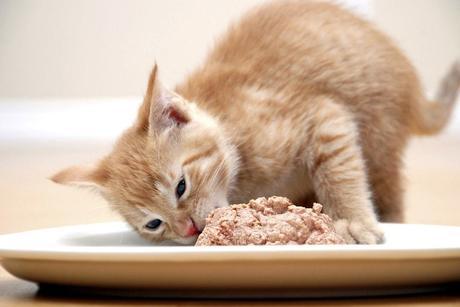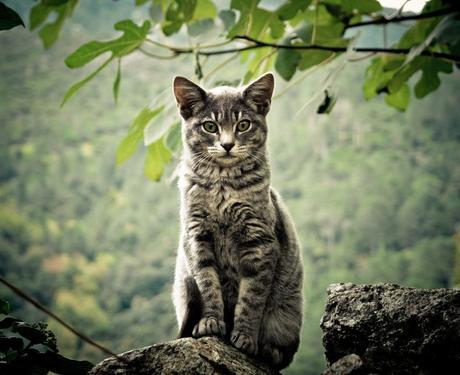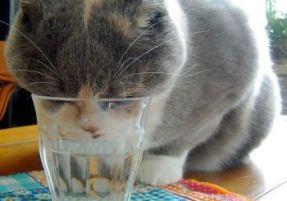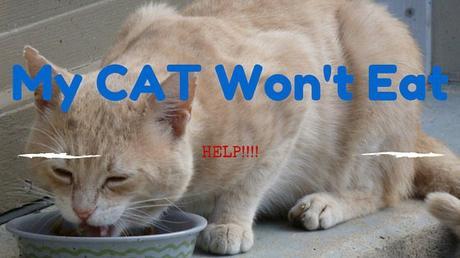We all love our cats dearly and wish for them to have a healthy and beautiful life. But there are times when we are truly bewildered and perplexed by their behaviors. One of the most confusing issues is that of a cat not eating.

As a cat owner most of us have faced situation when the cat simply refused to eat anything. This leads us to asking this dreaded question, how long can my cat go without eating?
It is quite understandable since the first thought occurs in our mind is that probably the cat is sick or suffering from some illness. While illness can be a case, it is not the only one. There are times when the cat seems completely fine from outside and yet is refusing to eat anything.
So exactly for how long can they keep this up? Let us check out the facts.
How long can the cat live without eating?

Fact is, cats will need water to survive, just like any other animal does. Without water a cat can live only up to a few days. The body will not function and sustain beyond that.
The major point of concern is that cats get most of the required water content from the food they are consuming. So, if your cat is not eating anything and also have refused to drink any water, the body will not sustain beyond a few days. The early signs of severe problems will starts showing quite soon.
In case the cat is not eating but drinking water, it will keep the body hydrated and will allow the cat to live up to two weeks. However, they will suffer from slow starvation for sure and this will cause many issues as well, such as problems in kidney and other such physiological issues. It is best that you take your cat to the vet before such a situation occurs.
What happens when your cat does not drink water?

As already mentioned, the cat can survive only for a few days without drinking water. Like any living being, the organs within cat's body need water to function properly. When the cat starts starving and refuses to drink water as well, the body quickly starts dehydrating. In such a scenario the first course of action for the organs is to get water and energy from other cells of the body. This means that the body cells start drying up, including the blood stream, which suffers negatively.
The body has its own defense mechanism in place and when it hits such a scenario such as dehydration, there is a particular order in which it starts shutting down the different organs. The first ones to stop working will be the kidneys and stomach. It will be followed by other organs and the final ones will be the heart and brain. These are vital for the body to remain alive and will use the last available resource to cling on to life.
Let me tell you this, even with the initial failures the cat suffers severe trauma. Even though the cat might recover from a scenario of early organ failure, the damage done is irreversible and irreparable. This is a horrific scenario and you need to avoid this at any cost.
What can you do if your cat is not eating or drinking?
The first course of action will be to coax your cat into eating something, especially some wet food or treat of some sort. As is mentioned earlier, water is of vital importance. You will have to ensure that your cat drinks something at any cost. Wet food has water content and will help keep your cat hydrated to some extent.
If you are unable to feed anything to your cat, it is important that you make him/her drink some water at least. You can get tuna flavored water in that case as the tuna flavor makes the cat drink some water. Also, the water contains some minerals and essential nutrients. This can satisfy the nutrition requirement to some extent.
However, if all else fails, you will have to take your cat to the vet at the earliest. In any case, it is necessary to take the cat to the vet, but if you are unable to feed any food or water, you must visit the vet at the earliest.
Why is my cat not eating or drinking?

Almost all health issues in cats have one symptom in common - loss of appetite. This makes it quite difficult to judge the exact reason behind the cat not eating or drinking anything. The cat can be suffering from diabetes as well. Loss of appetite can occur if the food you are giving to the cat is disagreeable due to some reason. Even depression in cats can lead to rejection of food and water. However, one of the most serious ailments that lead to loss of appetite in felines is Hepatic Lipidosis (HL).
Do not try to treat your cat's lack of interest in food all by yourself. Your vet is the best person to consult ad you should visit the vet at the earliest to diagnose the exact problem and take necessary precaution.
What is Hepatic Lipidosis?
Hepatic Lipidosis (HL) is also commonly referred to as the fatty liver disease. As the name suggests, the ailment causes fat buildup in the cells and tissues of the inside of the liver. This causes the liver to dysfunction and leads to biliary tract dysfunction. The problem is aggravated by the failing organs within the body.
Hepatic Lipidosis is an acute condition that causes a vicious cycle within the body of the cat. The ailment is caused doe to starving as the vital organs within the body starts looking for fat within the other cells of the body. Thus, the body is actually eaten out which results in thinning. At the same time, fat gets accumulated within the inner cells of the liver leading to dysfunction and ultimately loss of appetite. Hence, the situation is that the cat loses any interest in eating or drinking while the body starves and keeps self-destroying.
Cats experience two types of Hepatic Lipidosis -
- Idiopathic HL - This is caused doe to no apparent health condition but due to mental stress or trauma. If the cat is stressed due to change of surrounding or due to some sudden change in the immediate vicinity like a new animal being brought to home. The reason can even be depression in cats. Cats are highly sensitive to everything around them which makes them quite vulnerable as well.
- Secondary HL - This type of HL is cause doe to some ailment or disease. That is pre-existing or the cat has contracted recently. Mostly digestive trouble and liver issues are the reasons. Cholangiohepatitis, pancreatitis, diabetes, and other such gastrointestinal issues are common reasons as well.
How fast can my cat get Hepatic Lipidosis?
The rate at which a cat's health will deteriorate will depend upon the weight of the cat. A larger cat suffers from HL faster than a smaller cat due to the higher nutritional requirement and higher rate of metabolism. Ideally the situation can become fatal between 2 to 10 days.
The exact condition can be diagnosed by the vet through liver enzyme test and biopsy. It is essential that you consult vet at the earliest.
Conclusion
If your cat has started acting strange and is rejecting food or water or both, it is something that you must take very seriously. Changing the food can be an initial step, but you must not waste time as even a couple of days of complete starvation can cause irreparable damage.
We all love out cats and do not want to watch them in distress. Taking him/her to the vet a earliest sign of any ailment or appetite loss is thus a much better preventive measure. After all, it is always better to prevent than to cure.

